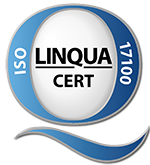
Spring Time: Neural Machine Translation and Artificial Intelligence at tekom and GALA
- Geschrieben von: Michael Kemmann
- Kategorie: Events
It's spring time, and the last two weeks have in close succession seen tekom's Spring Conference, held in Vienna this year, and the annual GALA Conference, for which Munich had been chosen as venue. In both it became obvious what the industry at large is preoccupied with: talks about Neural Machine Translation (NMT) and the application of Artificial Intelligence (AI) in the language industry, both in translation and content creation, were pretty much everywhere during both events.
What was there to be taken home from the numerous presentations and discussions covering many different aspects of the topic? Most importantly, which stance do we as a company take between the boundless, but somewhat one-dimensional optimism of the "tech guys", and the sometimes grumpy, yet not entirely unjustified scepticism of the usually more conservative "language people"? How to escape both euphoria and fear?
In a refreshingly down-to-earth presentation at GALA, Common Sense Advisory's Hélène Pielmeier set out to "debunk five myths about AI". One to me particularly noteworthy point she made was that a lot of technology currently carrying the best-selling label of AI is in fact nothing but rules-based process automation, or some type of expert system. Despite this, she urged every player in the industry, large or small, to closely look also into the "real" AI and its potential, and develop a strategy to embrace it. We certainly do!
It is quite obvious that neither NMT nor AI will make the language industry and its people redundant, but they are changing the way we are working, and in some areas probably significantly. However, this was also the case with the transition from typewriters to computers, or the advent of translation memory technology. And while currently the focus understandably seems to be very much on the opportunities AI, and Deep Learning in particular, can potentially offer, the debate will have to turn to the open questions, challenges and also downsides at some stage – specifically for language services meant for regulated industries like the medical sector.
The FDA, for instance, is currently struggling to determine how a medical device powered by AI and Machine Learning can effectively be regulated, as it is changing its behaviour continuously and (potentially) significantly after premarket assessment. On a smaller scale, we will also need to give some more thought on how much we can really hand over to algorithms – and how much human control we still need to exercise over our processes in order to stay compliant and accountable for what is happening. In our industry, however, this discussion is only about to begin.
Photo: Stefan Kühn [CC0], via Wikimedia Commons



